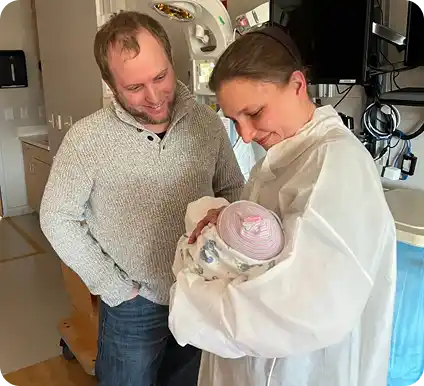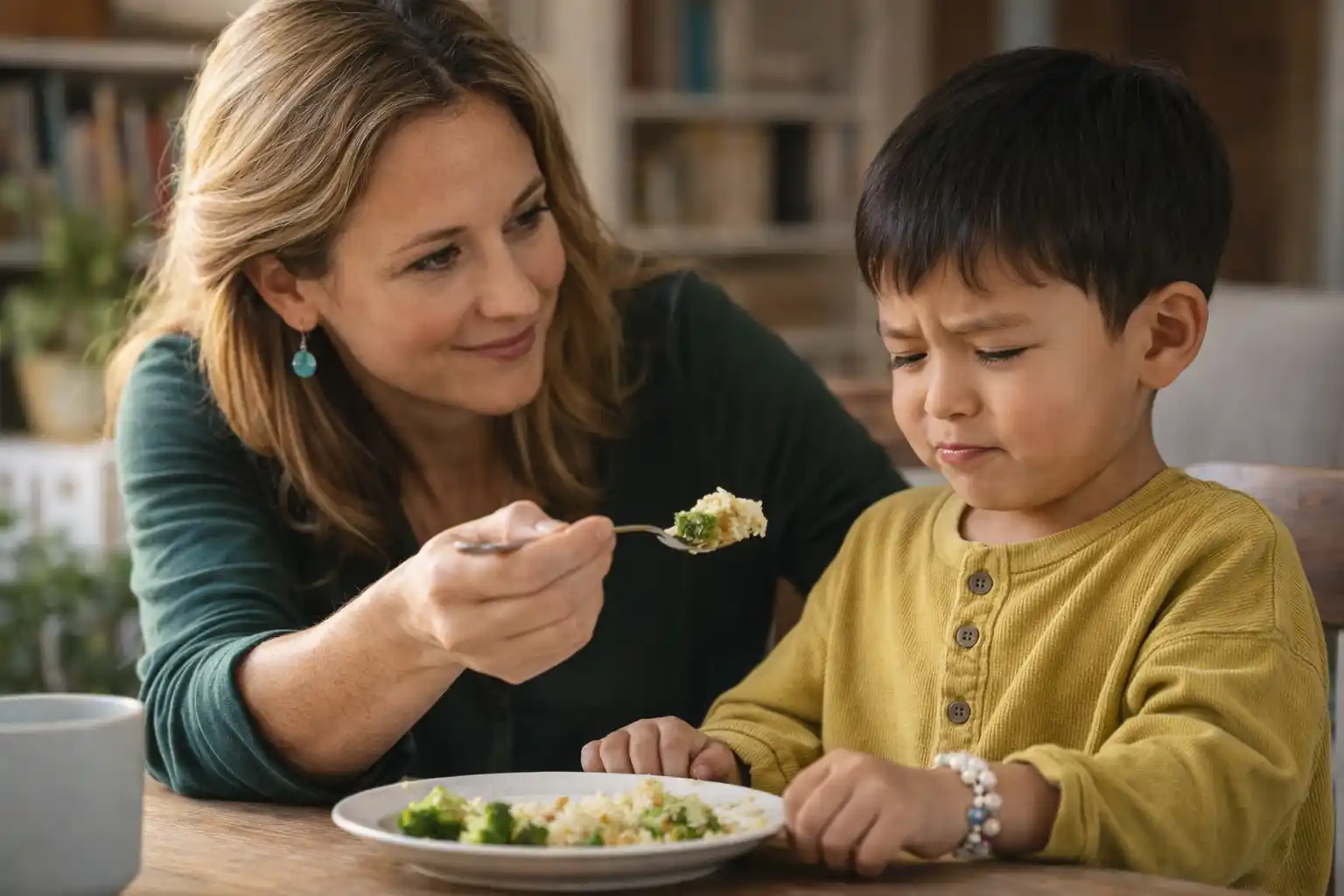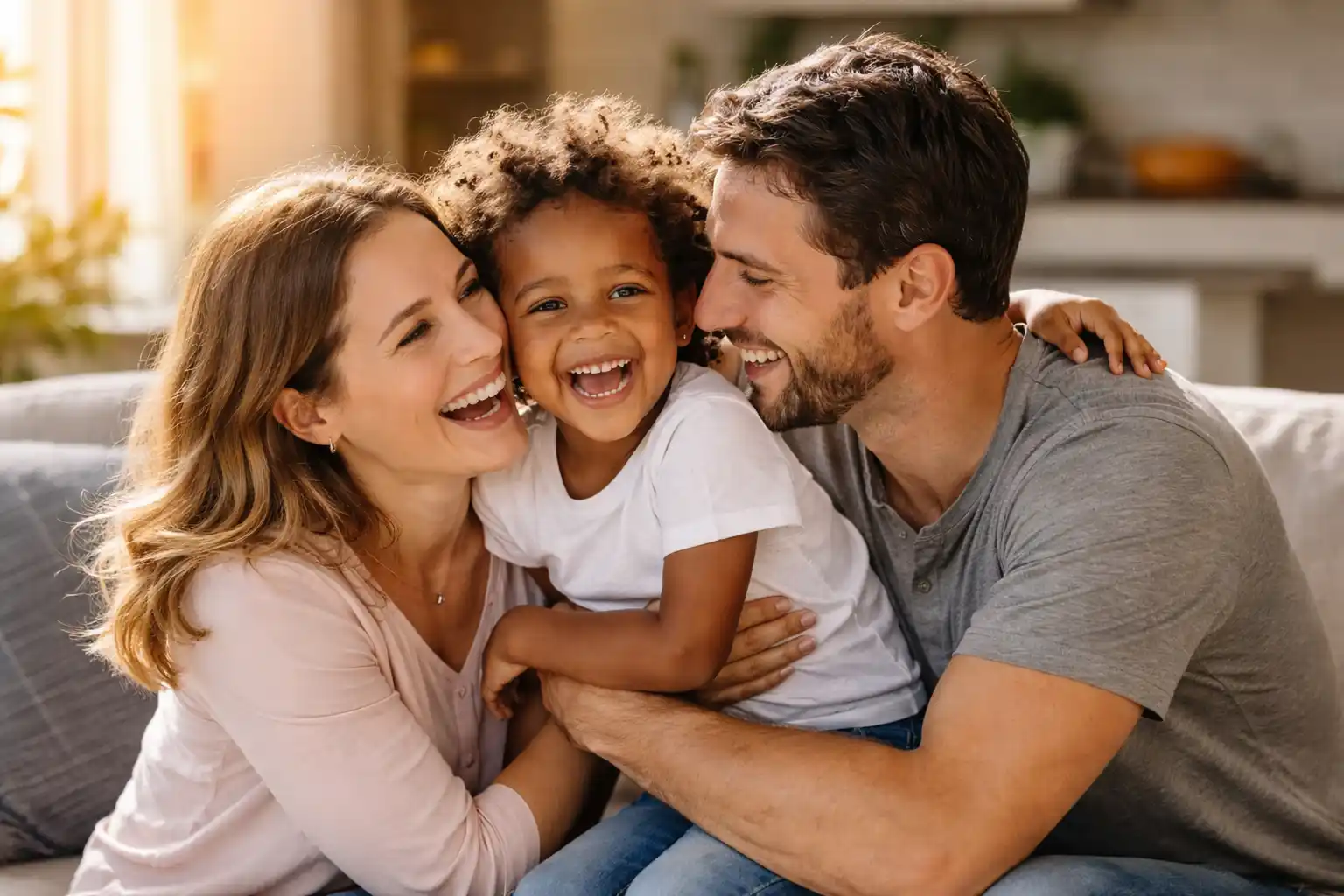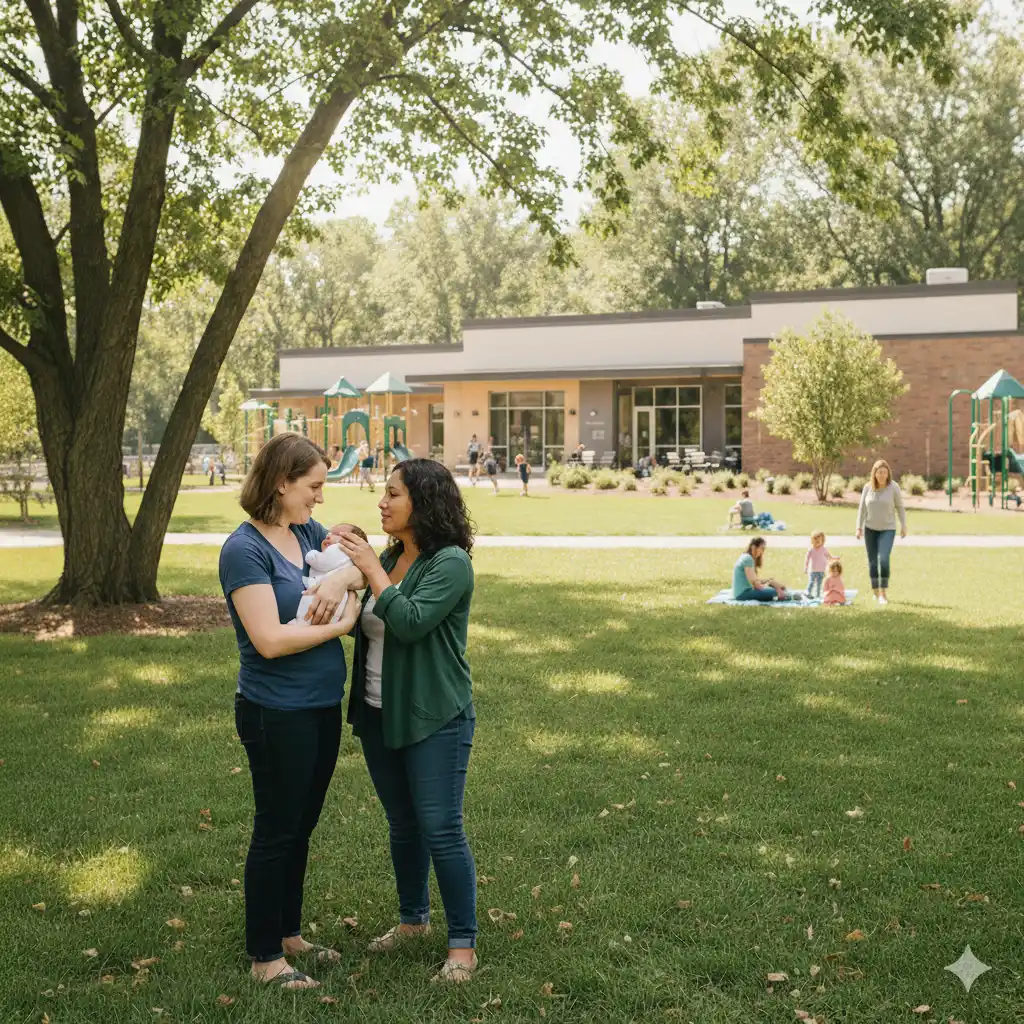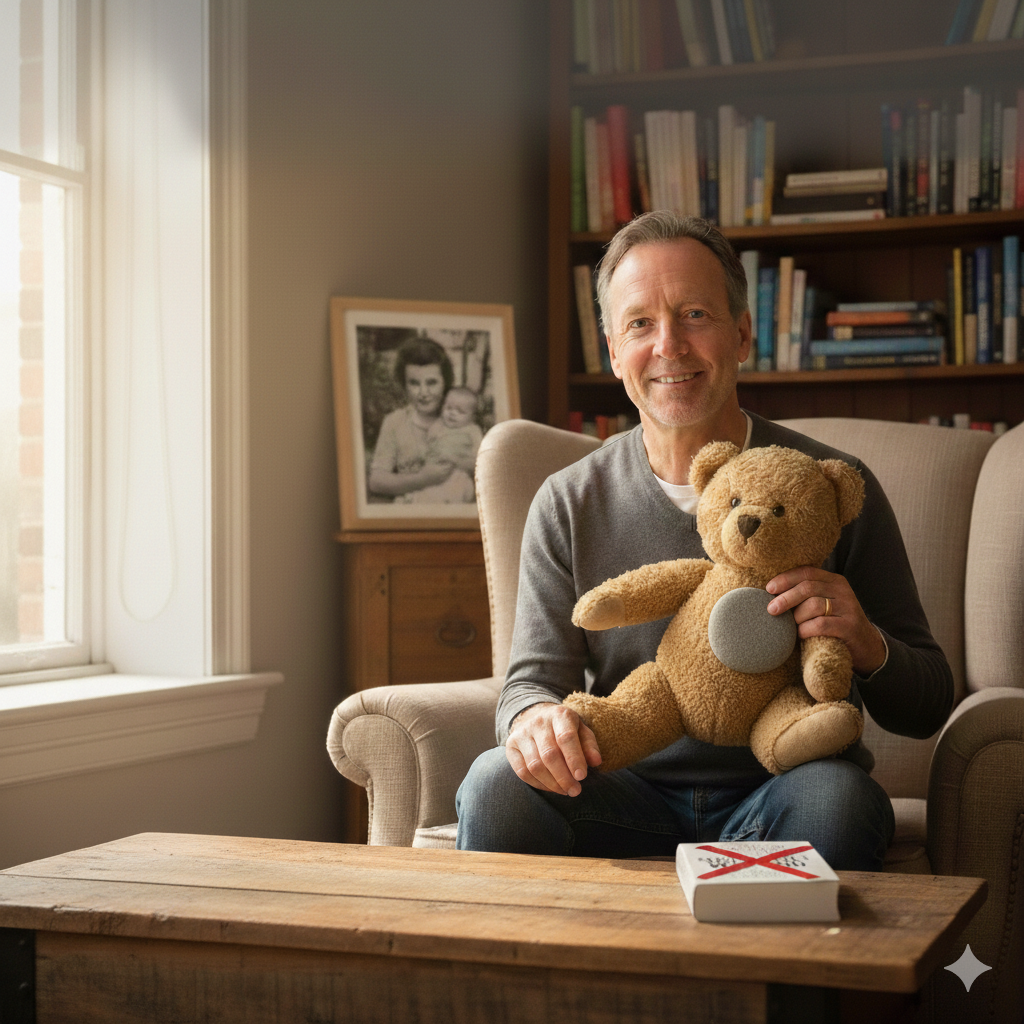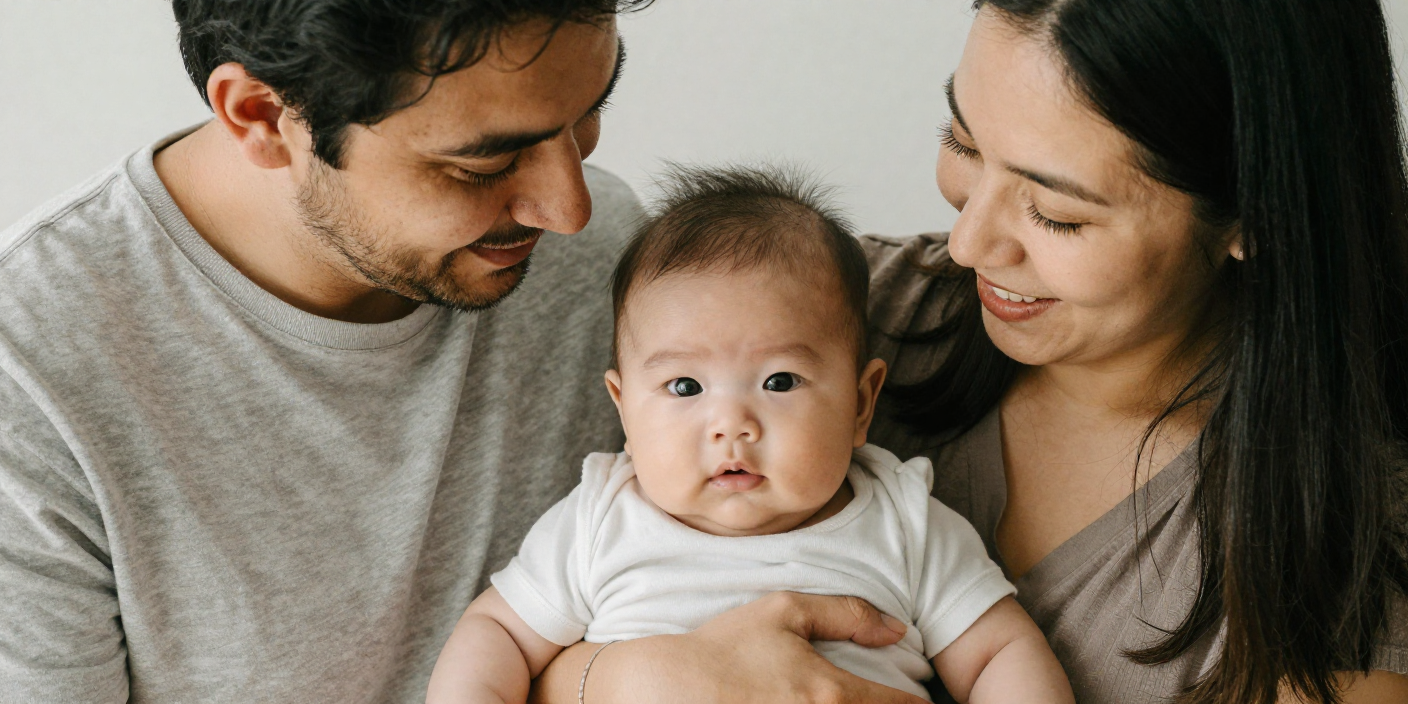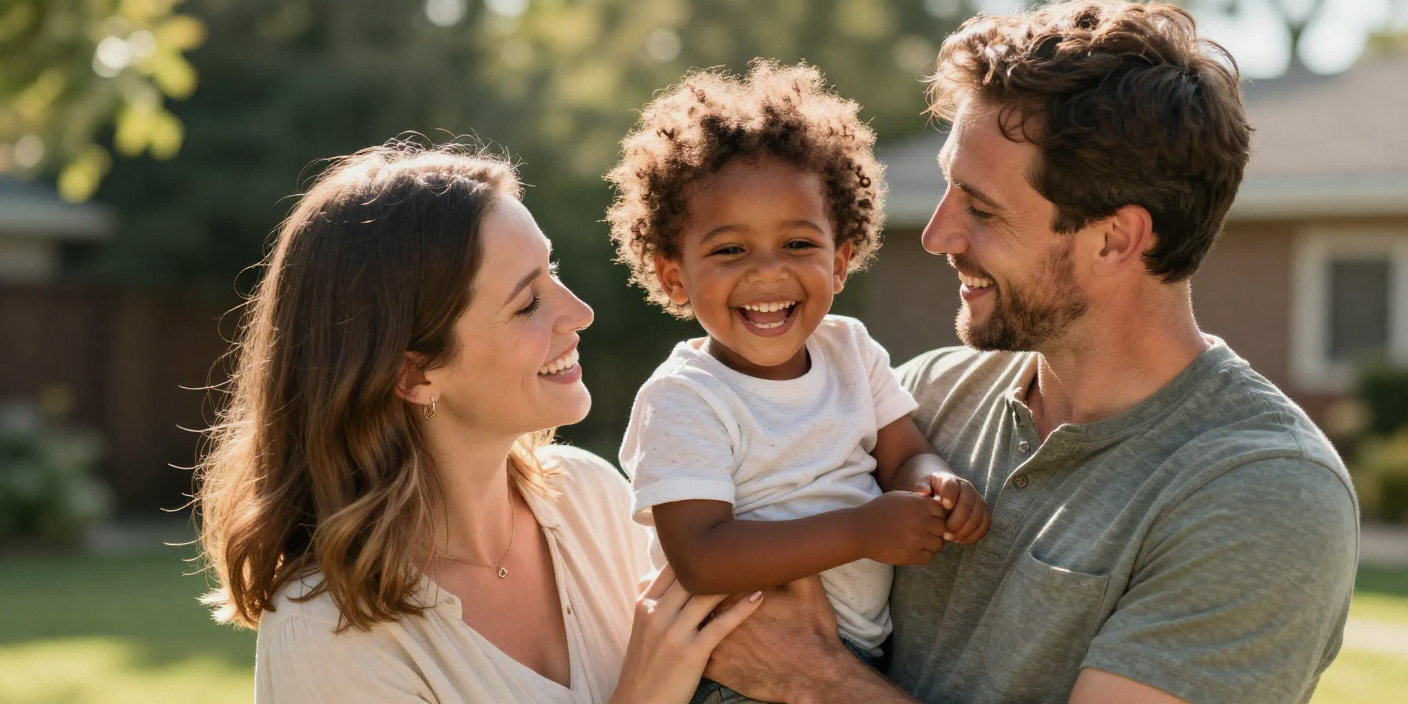Birth Mother Sings at Daughter's Wedding 25 Years After Placement
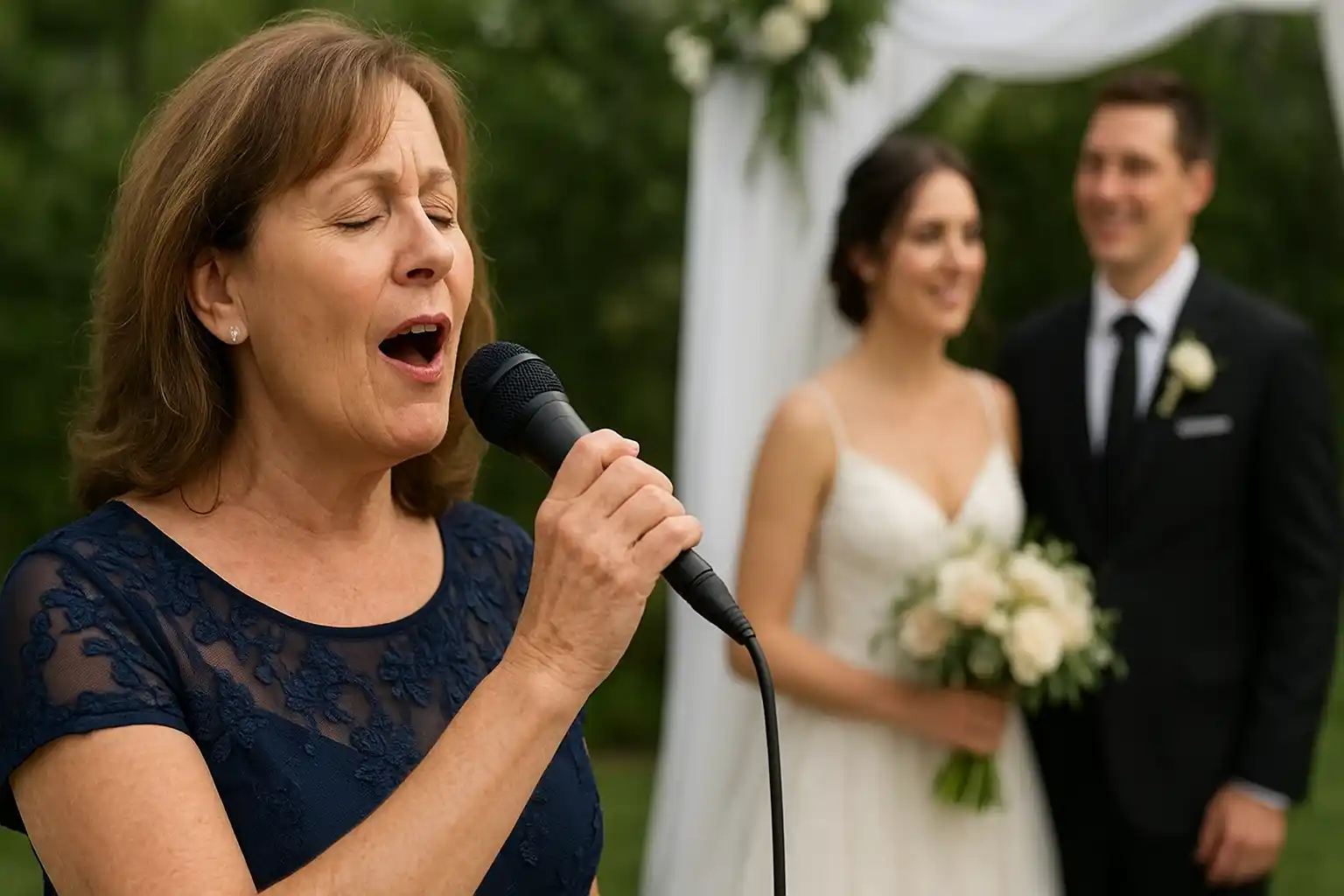
Emily Meikle stood in her daughter's wedding venue, preparing to sing a duet with Beth. Twenty-five years earlier, at 16, she had placed Beth for adoption, walking away in tears while knowing she'd made the right choice. Now, their voices blended while Emily's husband and Beth's adoptive parents watched this miracle unfold.
For Emily, whose faith in Jesus Christ sustained her through the darkest nights of grief, the reunion felt less like coincidence and more like a divine orchestration she'd trusted would someday come to pass.
In this episode of Voices of Adoption, host Donna Pope interviews Emily Meikle about her experience as both birth mother and adoptive mother, exploring how faith, family support, and open hearts create adoption relationships that honor everyone involved.
Your Daughter Says She's Pregnant
Emily was 16 when she told her mother about the pregnancy. She anticipated disappointment, maybe anger. What she received instead was her mother's arms wrapped around her: "It's going to be okay. We're going to get through this together."
That immediate acceptance gave Emily permission to think clearly about her options without shame clouding her judgment. Her parents made clear they would support whatever decision Emily made, whether raising the baby with their help or considering adoption. They never pressured, never made Emily's crisis about their own disappointment.
Emily's counselor at LDS Family Services reinforced this message, telling Emily's parents explicitly that this decision belonged to Emily alone. This freedom from pressure, paradoxically, gave Emily space to consider adoption seriously.
The birth father, also 16, handled the news with kindness and offered support. Though both were good kids from stable families, Emily wanted her daughter raised in a home where faith was central, where the child could be sealed to parents in the temple, where the gospel would be woven into daily life.
Choosing Through Personal Revelation
Emily's social worker gave her a stack of adoptive family profiles. Reading through them, Emily felt overwhelmed by how deserving every family seemed. But she also sensed there was one right family specifically meant for her daughter.
She noticed herself gravitating toward families with a three-year-old boy. Her own older brother had been protective during this difficult time, and she wanted her daughter to have that same relationship.
After narrowing choices to two families, both with three-year-old sons, Emily asked her parents how to make the final decision. They taught her to listen for the Spirit's guidance: "Which family comes to mind when you're lying in bed at night?"
One family's photo kept returning to Emily's mind no matter how hard she tried to consider the other option. She recognized this persistence as divine direction and chose that family.
The face-to-face meeting confirmed her choice. Emily felt as though she had one foot in heaven. The three-year-old boy, Billy, kept hugging Emily spontaneously. When Emily and the adoptive mother exchanged gifts they'd each made, they discovered both had chosen the same baby fabric from among thousands of prints available.
Then came the name discussion. The adoptive father liked "Sarah" while the mother preferred "Elizabeth." But whenever asked what the baby's name would be, Billy insisted: "Beth. It's Beth." When they opened Emily's grandmother's gift, the inscription read "Love, Grandma Beth." Everyone cried, realizing Billy had been right. When Grandma Beth passed away 18 months later, everyone felt she'd become the baby's guardian angel.
Birth mothers who feel they chose their child's adoptive family report higher satisfaction and better emotional outcomes than those who felt the decision was made for them. Emily's experience demonstrates how personal agency combined with spiritual guidance creates confidence in placement decisions.
The Hardest Goodbye
Emily describes placing Beth in her adoptive father's arms as the hardest thing she'd ever done. She specifically requested handing Beth to her father first, drawn to the idea of her daughter being held by someone who would be her teddy bear the way Emily's own father had been for her.
Emily cried the entire drive home and continued crying for six months. She wouldn't wish that pain on her worst enemy. Yet through those darkest nights, she never once doubted her decision. She experienced a strange duality: devastating heartache when remembering the hospital, peaceful joy when receiving letters and photos showing Beth thriving.
Birth mothers experience complex grief distinct from other types of loss, often including both sorrow and relief simultaneously. Emily's ability to hold both emotions without letting one invalidate the other, sustained by faith, allowed her to process grief while maintaining confidence in her choice.
Emily wrote a poem to Beth during pregnancy that she later turned into a song called "One Family," expressing hope they might reunite someday. This creative expression became part of her healing process.
Reunion Through DNA
On Beth's 17th birthday, Emily felt strongly impressed to write a letter expressing hope they might meet when Beth turned 18. She dropped the letter at the agency and felt stopped in her tracks by an overwhelming spiritual impression that something big was happening.
Days later, Emily felt prompted to rewrite Beth's song from a perspective 17 years later. She changed the title to "One Day" and the tone became more hopeful, as though preparing her heart for an imminent reunion.
At exactly this time, Emily's sister did Ancestry DNA. When results came back showing a match to Beth, Emily reached out to Beth's adoptive mother on Facebook with no pressure, just information. The response came immediately: Beth had been wanting to meet Emily and hoped Emily could attend her high school graduation.
The reunion felt as natural as the original face-to-face meeting 17 years earlier. Beth looked remarkably like Emily had at that age. They shared similar personalities, both cautious and slow-moving. Beth was musically talented, having developed gifts her adoptive parents fostered beautifully.
Adoption reunions occurring in late adolescence or young adulthood tend to have positive outcomes when both parties approach gradually and without pressure. Emily and Beth's careful approach created sustainable connection rather than overwhelming intensity.
Full Circle at the Wedding
Over several years, both families developed genuine relationships. When Beth asked Emily to sing at her wedding, Emily felt honored beyond measure.
Two days before the ceremony, Beth mentioned she was going dress shopping because her original dress didn't make her feel beautiful. Emily offered to accompany her. After their phones died (a genetic trait Emily laughingly claims Beth inherited), they found a woman who rented dresses from her basement. At 8pm, they found the perfect dress that fit without alterations.
At the wedding, singing their duet while surrounded by both families, Emily experienced a moment where time seemed to stop. She had flashbacks to placement 25 years earlier and wondered whether God had known even then that they would stand together. Perhaps the peace she'd felt through the darkest grief had been her spirit somehow knowing it would all work out.
The relationship between Emily and Beth's adoptive mother exemplifies what healthy open adoption can become. Beth's mother explains that she doesn't feel jealous when Beth shares special moments with Emily because Beth is God's child, and He allowed both women to participate in her life in different ways.
Birth mothers who are more satisfied with their contact arrangements, regardless of level of contact, have less unresolved grief 12 to 20 years after placement. Emily's ongoing relationship with Beth demonstrates this principle, as her satisfaction with their open arrangement has contributed to her healing.
Guidance for Others
Emily offers specific advice for different members of the adoption constellation:
For expectant mothers considering adoption: Trust your feelings and let God guide your life. Look for moments when God speaks to your heart. The decision-making process unfolds gradually, with little confirmations building over time into clear direction.
For parents of pregnant daughters: Show love and empathy above all else. Anyone facing unplanned pregnancy already feels fear, confusion, and shame. They don't need more shame. Show them love and direct them toward hope and answers.
For adoptees: Know that you are loved. Emily has met countless birth mothers through support groups, and every single one loves their child as any mother would. Placement decisions have nothing to do with lack of love and everything to do with wanting the child to have the best possible chance at life.
Emily particularly wants to reframe the phrase "gave up" which stings when applied to adoption. In her song, she wrote: "I didn't give you up. I gave a mother's love." She gave Beth her love as a birth mother, and she gave Beth to an adoptive mother who loves her deeply. The phrase honors both relationships while acknowledging the sacrifice and intention behind placement.
When Faith Guides the Journey
Emily's story demonstrates how faith can sustain birth mothers through placement grief while maintaining confidence in their decision. Her relationship with Jesus Christ provided comfort during sleepless nights, assurance that God orchestrated the plan, and hope for eventual reunion.
The relationship between both families shows what's possible when adoptive parents honor birth mothers rather than viewing them as threats, when birth mothers trust adoptive parents to raise their children with love, and when everyone involved prioritizes the child's wellbeing above territorial feelings.
Not every adoption includes a reunion, and not every reunion unfolds as smoothly as Emily and Beth's experience. But Emily's story offers hope that open hearts, mutual respect, and faith in God's plan can create families that extend beyond biology while honoring the love that motivated placement in the first place.
Ready to explore more birth mother stories and faith in adoption? Subscribe to Voices of Adoption for conversations that honor complexity, celebrate love, and recognize the divine hand in adoption journeys.
Follow or Subscribe to Voices of Adoption on your favorite platform:
Website: VoicesOfAdoption.org | YouTube: @VoicesofAdoptionShow | Twitter/X: voices_adoption | Instagram: voicesof_adoption | Facebook: Voices of Adoption | TikTok: @voices_of_adoption | LinkedIn: voices-of-adoption
Follow Nathan Gwilliam on LinkedIn: @nathangwilliam
Follow Donna Pope on LinkedIn: @donna-pope-41652ba
Follow Emily Meikle:YouTube: @emilymeiklemusic

